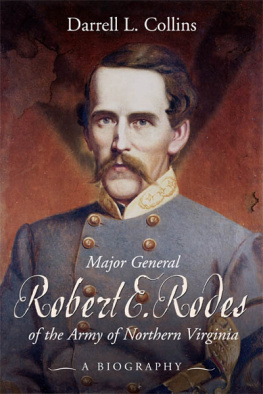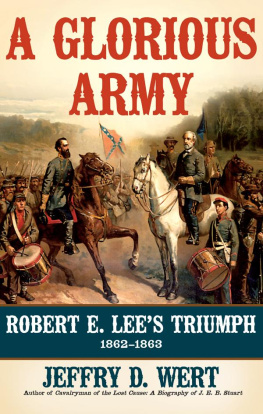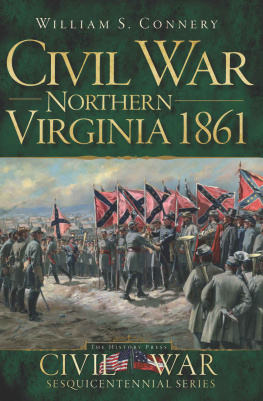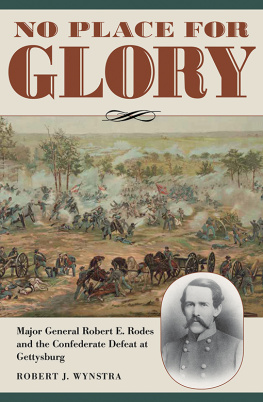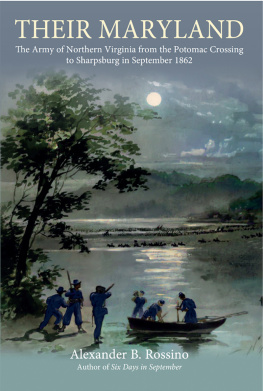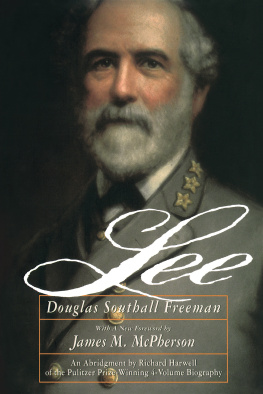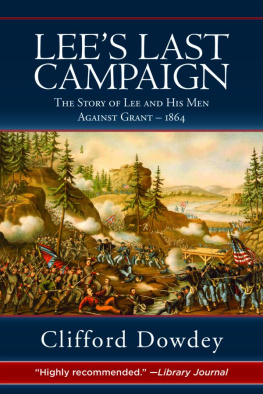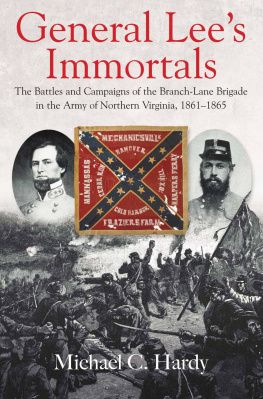
2008 by Darrell L. Collins
All rights reserved. No part of this publication may be reproduced, stored in a retrieval system, or transmitted, in any form or by any means, electronic, mechanical, photocopying, recording, or otherwise, without the prior written permission of the publisher. Printed in the United States of America.
Cataloging-in-Publication Data is available from the Library of Congress.
ISBN 978-1-932714-09-8
Digital Edition ISBN: 978-1-61121-009-5
05 04 03 02 01 5 4 3 2 13
First edition, first printing

Published by
Savas Beatie LLC
521 Fifth Avenue, Suite 3400
New York, NY 10175
Phone: 610-853-9131
Editorial Offices:
Savas Beatie LLC
P.O. Box 4527
El Dorado Hills, CA 95762
Phone: 916-941-6896
(E-mail) editorial@savasbeatie.com
Savas Beatie titles are available at special discounts for bulk purchases in the United States by corporations, institutions, and other organizations. For more details, please contact Special Sales, P.O. Box 4527, El Dorado Hills, CA 95762, or you may e-mail us at sales@savasbeatie.com, or visit our website at www.savasbeatie.com for additional information.

To the loving and cherished
memory of Dad and Mama

Maj. Gen. Robert E. Rodes, Army of Naorthern Virginia
Virginia Military Institute
Contents
Maps
Photos and Illustrations
Photos and illustrations have been placed throughout
the book for the convenience of the readers.
| Introduction
In life, Robert E. Rodes was held in the highest regard by his contemporaries. Many went so far as to compare him favorably with Thomas Stonewall Jackson. The sight of him, one proudly proclaimed, was sure to extort a cheer which was rarely given to any besides Gen. Jackson. In death, Rodes reputation rose to even greater heights among those who had known or served with him. We have never suffered a greater loss save in the Great Jackson, declared Jedediah Hotchkiss, Jacksons renowned mapmaker. Rodes was the best Division Commander in the Army of N. Va. & was worthy of & capable for any position in it.
But as time passed and memories faded, succeeding generations found it increasingly difficult to appreciate Rodes and his impact upon the era in which he lived. It was not until the beginning of the 21st Century, in 2000, that a full length biographical treatment of the increasingly obscure Civil War general appeared.
Many personal items, thankfully, escaped the grasp of Rodes well-meaning wife and are preserved by institutions scattered across the country. Though perhaps not as revealing, or even as interesting, as confidential letters to a beloved spouse or brother officers, these items nonetheless help construct a meaningful portrait of their primary subject. Surviving items include letters from Rodes to his father, friends, colleagues, and associates, as well as many of Rodes official reports, both civilian and military. Of no less importance are the extant letters written to Rodes from many of these same sources. Finally, there are the letters, diary entries, reminiscences, memoirs, and testimonials written about Rodes by people who, in one way or another, knew him and what it was like to work with him, to break bread with him, to share their feelings with him, to serve under him, and to entrust their lives to him.
Pieced together, these sources present a man of remarkable intelligence, courage, and sensitivity. Yet he also was a surprisingly simple man. In both civilian and military life he lived by one worddiscipline, a creed that earned him his fair share of detractors. The stern military precision of Gen. Rodes, declared one observer, were not such as to render him a favorite with a citizen soldiery. Though he might be stern in the discharge of duty and in exacting it of others, as one contemporary described him, Rodes also was known as a man of firmness tempered with kindness. With a reserved but generous, cordial and lovable disposition that was soft and genial in his hours of ease and relaxation, Rodes knew how to draw the line between business and pleasure, duty and off-duty. Combined with the advantage of a striking personal appearance, these characteristics won him great loyalty, admiration and respect.
As a commander on the defensive, Rodes proved extremely reliable, steady, persistent, and rock solid. On the offensive he was often cautious, and sometimes exceedingly so. Unlike the impetuous A. P. Hill, who was always ready to launch a devil-may-care assault, Rodes preferred not to strike until he had deployed his entire force. But when he unleashed his legions, Rodes did so with unrivaled ferocity, always leading, encouraging, and spurring on his men at great risk to his own personal safety. Rodes was in the thick of every combat and played a major role in nearly every battle fought by the Army of Northern Virginia, from the Peninsula Campaign in the spring of 1862 through Third Winchester in the fall of 1864.
If he could, Rodes might object to being the subject of a biography. It is even possible that he would not have agreed to be interviewed for one. In life, he had craved recognition, even glory, but he despised those who tried to promote themselves by anything other than their own achievements. The reputation of a man, the Lynchburg, Virginia, native firmly believed, should be formed more by his deeds than by his words.
Perhaps Hortense, who knew Robert Rodes better than anyone, may have realized the same thing when she cast most of her loves letters into the flames.
| Acknowledgments
It has taken many years to produce this book, and many people and institutions provided tremendous assistance along the way. Almost certainly I have forgotten to list someone who helped me, so if your name is not found here, please accept my apology and know that I will also appreciate your kindness and assistance, great or small, that helped me write this book.
I want to thank the very helpful staffs at the following institutions: Alabama Dept. of Archives & History, Birmingham Public Library, Auburn University Library, University of Alabama Libraries, Georgia Dept. of Archives & History, Maryland Historical Society, Duke University Libraries, North Carolina Dept. of Archives & History, University of North Carolina Libraries, U.S. Army Heritage Center, University of Virginia Libraries, Museum of the Confederacy, James Madison University Library, The Handley Regional Library in Winchester, Virginia Historical Society, Preston Library at the Virginia Military Institute, and the Virginia Tech. Libraries.
My publisher Savas Beatie is a first-class organization, and I want to thank everyone there for believing in this project. Managing Director Theodore Ted Savas in particular provided invaluable help and insights as this project developed. His editor Terry Johnston, formerly of North and South Magazine , did a superb job editing my work. I also wish to extend a hearty thanks to Lee Meredith for indexing my book.
Thanks also to Tim Reese for producing the excellent maps.
A very special thanks to Mary Rodes Dell, the great-great granddaughter of the subject of this book, for her very significant last-minute contributions in obtaining some very special photographs.

